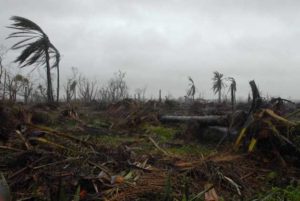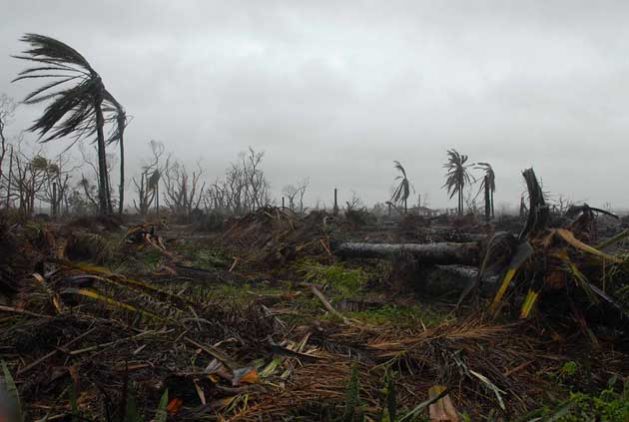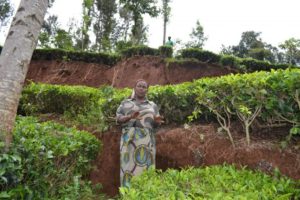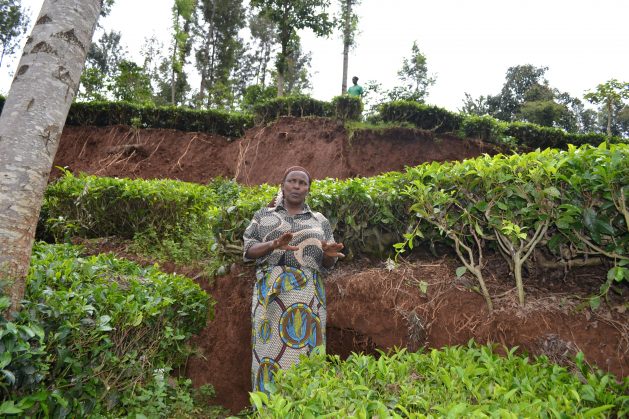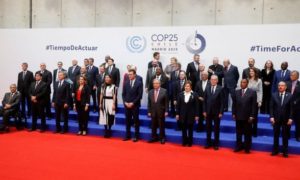
Civil Society, Climate Change, Conferences, Development & Aid, Editors’ Choice, Environment, Europe, Featured, Global, Global Governance, Globalisation, Headlines, IPS UN: Inside the Glasshouse, Poverty & SDGs, Regional Categories
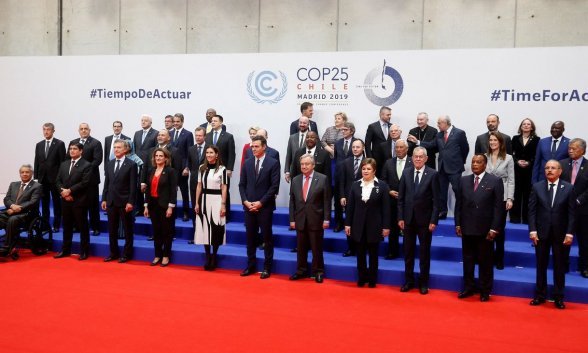
Family photo at the opening of the 25th Conference of the Parties (COP25) on climate change, taking place in Madrid Dec. 2 to 13. Credit: UNFCCC
– Tens of thousands of delegates from state parties began working Monday Dec. 2 in the Spanish capital to pave the way to comply with the Paris Agreement on climate change, while at a parallel summit, representatives of civil society demanded that the international community go further.
Calls to combat the climate emergency marked the opening of the 25th Conference of the Parties (COP25) to the United Nations Framework Convention on Climate Change (UNFCCC), in light of the most recent scientific data showing the severity of the crisis, as reflected by more intense storms, rising temperatures and sea levels, and polar melting.
Pedro Sánchez, acting prime minister of Spain – selected as the emergency host country after the political crisis in Chile forced the relocation of the summit – called during the opening ceremony for Europe to lead the decarbonisation of the economy and move faster to reduce emissions of carbon dioxide (CO2), the greenhouse gas generated by human activities.
“Today, fortunately, only a handful of fanatics deny the evidence” about the climate emergency, Sánchez said at the opening of the COP, held under the motto “Time to act” at the Feria de Madrid Institute (IFEMA) fairgrounds.
COP25 is the third consecutive climate conference held in Europe. The agenda focuses on issues such as financing for national climate policies and the rules for emission reduction markets – outlined without specifics in the Paris Agreement, which was agreed four years ago and is to enter into force in 2020.
It will also address the preparation of the update of emissions reductions and funding of the Warsaw International Mechanism for Loss and Damage, designed to assist regions particularly vulnerable to the adverse effects of climate change.
In the 1,000 square metres where COP25 is being held, 29,000 people – according to estimates by the organisers – including some 50 heads of state and government, representatives of the 196 official delegations and civil society organisations, as well as 1,500 accredited journalists, will gather until Dec. 13.
But the notable absence of U.S. President Donald Trump, Russian President Vladimir Putin, Indian Prime Minister Narendra Modi, Chinese President Xi Jinping, Brazilian President Jair Bolsonaro, and UK Prime Minister Boris Johnson does not give cause for optimism.
These include the leaders of the countries that produce the most greenhouse gas (GHG) emissions, making their lack of interest in strengthening the Paris Agreement more serious.
On Nov. 4, U.S. Secretary of State Mike Pompeo said he submitted a formal notice to the United Nations to begin the process of pulling out of the climate accord.
U.N. Secretary-General António Guterres said during the opening ceremony that “The latest, just-released data from the World Meteorological Organisation show that levels of heat-trapping greenhouse gases in the atmosphere have reached another new record high.
“Do we really want to be remembered as the generation that buried its head in the sand, that fiddled while the planet burned?”
In its Emissions Gap Report 2019, the U.N. Environment Programme warned on the eve of the opening of COP25 of the need to cut emissions by 7.6 percent a year between 2020 and 2030 in order to stay within the 1.5 degree Celsius cap on temperature rise proposed in the Paris Agreement.
Many delegations admitted that the world is off track to achieving the proposed 45 percent reduction in GHG by 2030 and to becoming carbon neutral by 2050.
In fact, delegates pointed out on Monday, emissions reached an alarming 55.3 billion tons in 2018, including deforestation.
One of the hopes is that more countries, cities, companies and investment funds will join the Climate Ambition Alliance, launched by Chile, the country that still holds the presidency of the COP, and endorsed by at least 66 nations, 10 regions, 102 cities, 93 corporations and 12 large private investors.
More than 70 countries and 100 cities so far have committed to reaching zero net emissions by 2050.
Social summit
Parallel to the official meeting, organisations from around the world are gathered at the Social Summit for Climate under the slogan “Beyond COP25: People for Climate”, which in its statement to the conference criticises the economic model based on the extraction of natural resources and mass consumption, blaming it for the climate crisis, and complaining about the lack of results in the UNFCCC meetings.
“The scientific diagnosis is clear regarding the seriousness and urgency of the moment. Economic growth happens at the expense of the most vulnerable people,” says the statement, which defends climate justice “as the backbone of the social fights of our time” and “the broadest umbrella that exists to protect all the diversity of struggles for another possible world.”
The first week of the COP is expected to see the arrival of Swedish activist Greta Thunberg, who has unleashed youth mobilisation against the climate crisis around the world.
In terms of how well countries are complying, only Gabon and Nepal have met their Nationally Determined Contributions (NDCs), the mitigation and adaptation measures voluntarily adopted, within the Paris Agreement, to keep the temperature rise below 1.5 degrees Celsius.
But these two countries have practically no responsibility for the climate emergency.
The plans of Bhutan, Costa Rica, Ethiopia and the Philippines involve an increase of up to 2.0 degrees, while the measures of the rest of the countries range from “insufficient” to “critically insufficient”.
Latin America “has to be more ambitious: although progress has been made, the measures are insufficient. We need a multilateral response to the emergency. We have only 11 years to correct the course and thus reach carbon neutrality in 2050 and meet the goal of keeping the temperature rise to 1.5 degrees,” said Manuel Pulgar-Vidal, global head of Climate and Energy at the World Wildlife Fund (WWF).
The Marshall Islands already submitted their NDCs 2020, while 41 nations have declared their intention to update their voluntary measures and 68 nations – including those of the European Union – have stated that they plan to further cut emissions.
In its position regarding the COP25, consulted by IPS, Mexico outlined 10 priorities, including voluntary cooperation, adaptation, climate financing, gender and climate change, local communities and indigenous peoples.

